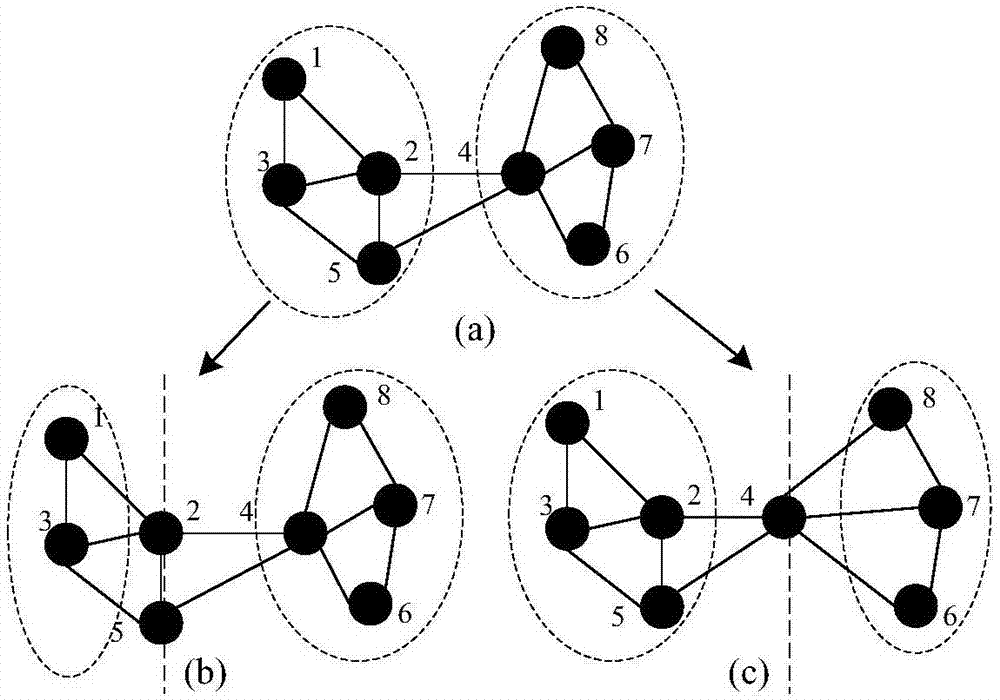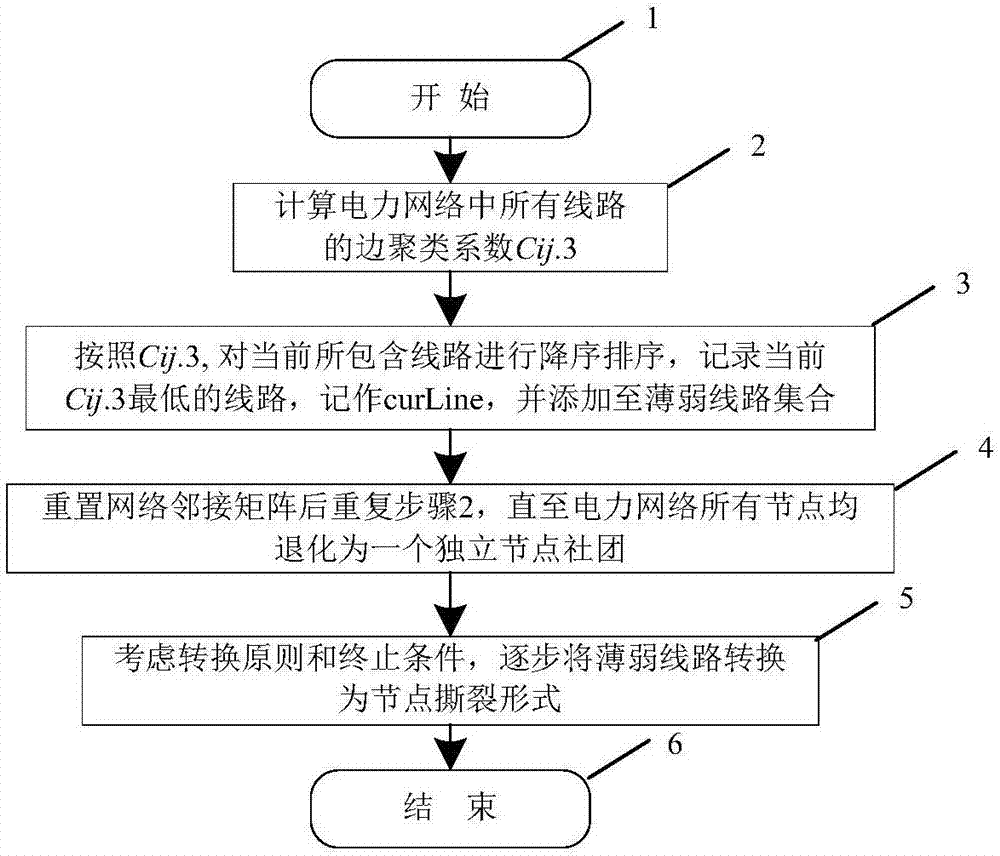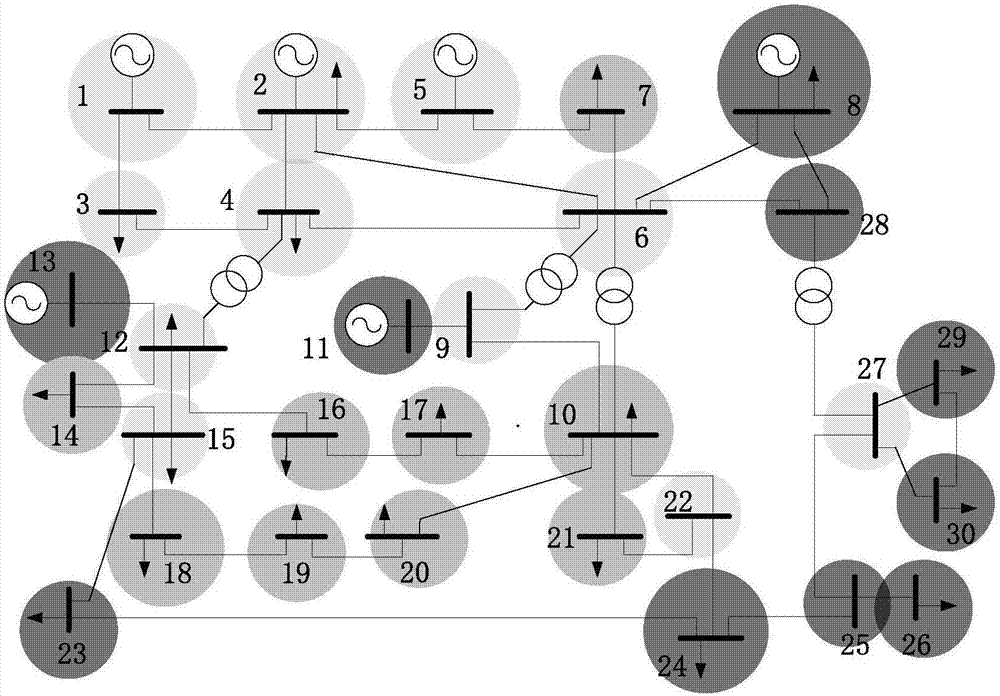Node transfer network partitioning optimization method based on rapid splitting algorithm
A technology of splitting algorithm and optimization method, which is applied in the direction of data exchange network, digital transmission system, electrical components, etc., and can solve problems such as inability to expand applications and inability to determine split node sets objectively and reasonably
- Summary
- Abstract
- Description
- Claims
- Application Information
AI Technical Summary
Problems solved by technology
Method used
Image
Examples
Embodiment Construction
[0017] The present invention will be further described in detail below in conjunction with the accompanying drawings and specific embodiments. The method of the present invention first determines the set of lines with weak topological links in the power network with a fast splitting algorithm; secondly, introduces the concept of "migration" to convert the weak lines in the set into split nodes, so as to determine the set of split nodes and the set of split patterns; finally , according to the segmentation objective condition function, the optimal segmentation pattern of the power network is selected. The details are as follows:
[0018] 1. Weak line selection based on fast splitting algorithm
[0019] The application of complex network theory in power systems has become increasingly mature, such as grid structure identification, reactive power partitioning, network dynamics analysis, and 500 / 220kV electromagnetic ring network solution. As a pioneering algorithm in community ...
PUM
 Login to View More
Login to View More Abstract
Description
Claims
Application Information
 Login to View More
Login to View More - R&D
- Intellectual Property
- Life Sciences
- Materials
- Tech Scout
- Unparalleled Data Quality
- Higher Quality Content
- 60% Fewer Hallucinations
Browse by: Latest US Patents, China's latest patents, Technical Efficacy Thesaurus, Application Domain, Technology Topic, Popular Technical Reports.
© 2025 PatSnap. All rights reserved.Legal|Privacy policy|Modern Slavery Act Transparency Statement|Sitemap|About US| Contact US: help@patsnap.com



